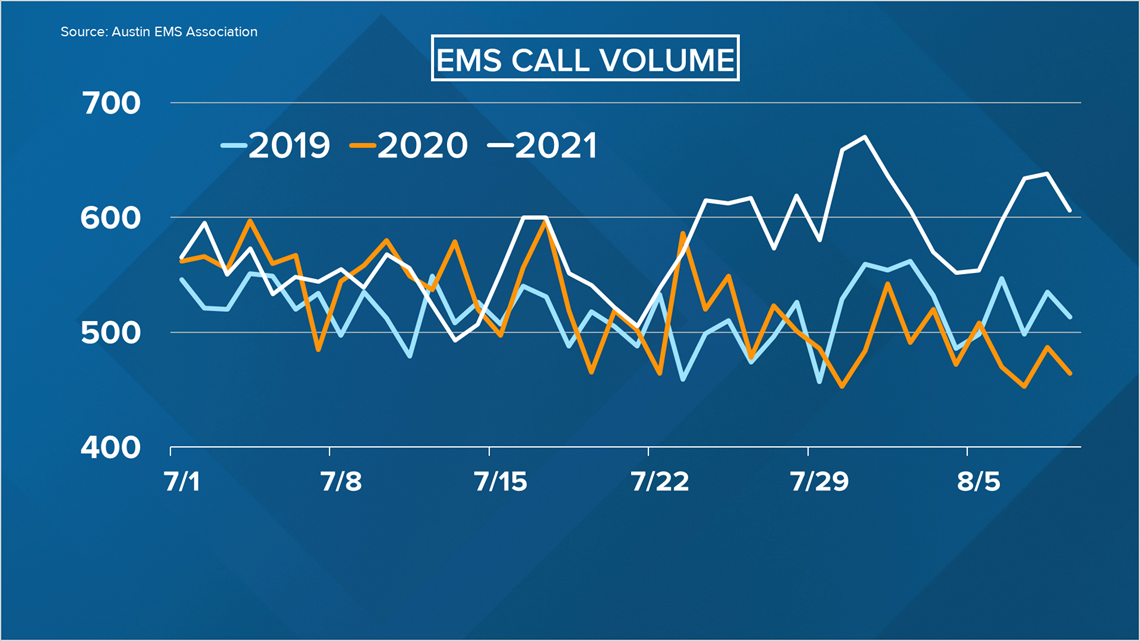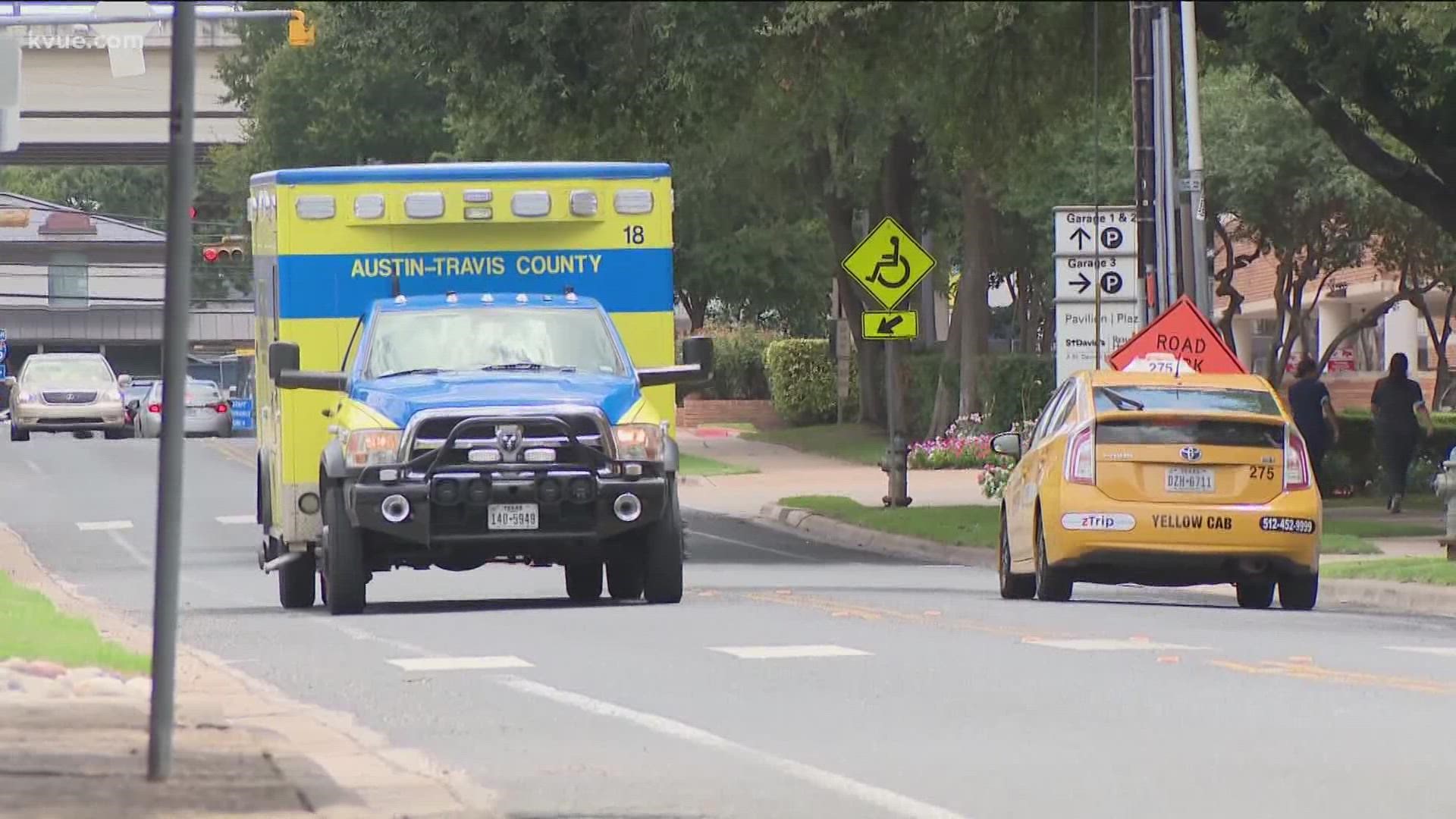AUSTIN, Texas — The past year-and-a-half has put first responders through the ringer. First a pandemic, then an ice storm, and now the Austin area is facing another COVID-19 surge.
"It feels like it's endless," said Selina Xie, the Austin EMS Association president.
She said medics are feeling burnt out from COVID-19 and its impacts.
"I don't know how many times I can tell my medics to keep hanging in there," said Xie.
Xie said COVID-19 is also impacting emergency room wait times. She said they're now having to use a resource that shows how busy each ER is so they know how to best spread out patients.
"Even three weeks ago, you bring a patient into the ER and you already know what bed you're going to so you'll wheel them straight back ... and a nurse will meet you there and take report from you," said Xie. "Now, mostly that's still happening, but there are times where it takes up to 30 minutes to get a bed and get report to the nurse ... Unfortunately, if we bring a patient out to the waiting room, it can be an hour to a few hours to see a nurse."
She said she's seen nurses have to figure out which patients are a priority and which will have to wait.
"We're seeing nurses have to do that a lot more in our waiting rooms because we don't have the staff to take care of people right now," said Xie.
KVUE reached out to Ascension Seton, Baylor Scott & White and St. David's to see if the hospital systems are seeing an increase in wait times due to COVID-19. The three systems sent a joint response:
"Ascension Seton, Baylor Scott & White Health and St. David’s HealthCare continue to work together to optimize hospital capacity as we balance our readiness to care for COVID-19 and non-COVID patients.
"This latest COVID-19 spike is putting extraordinary pressure on our hospitals, our emergency departments and our healthcare professionals. The overwhelming majority of the patients we are treating for COVID-19 are unvaccinated, and the rising number of cases is discouraging.
"At peak times, it may be necessary to temporarily request ambulances redirect patients to alternate hospital facilities to ensure the patients can be treated in a timely manner. This is done in an effort to safely route patients to an appropriate level of care while a hospital is experiencing a very high number of patients. A diversion request does not indicate that a hospital emergency department is closed. Our hospital emergency departments will remain open to walk-ins and others who need emergency care.
Along with wait times, ATCEMS is seeing a jump in its call load, according to Xie.
The most recent data from Monday shows about 100 more calls than that same date in 2019, and Xie said COVID-19 cases are a big reason.


"I don't think we've ever seen call volumes like this, except for during the ice storm where we were in the thousands," said Xie. "But, normally, we never even crossed 600 unless it's, like, New Year's Eve."
Xie said medics get rapid tests before each shift but, because of how busy medics are, they can't even get the results before they're running calls.
PEOPLE ARE ALSO READING:

